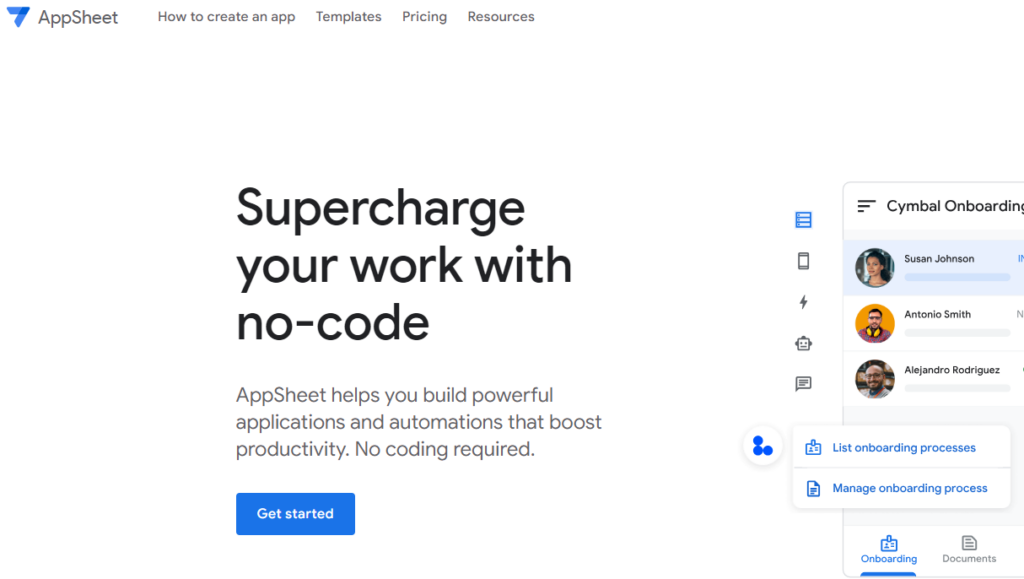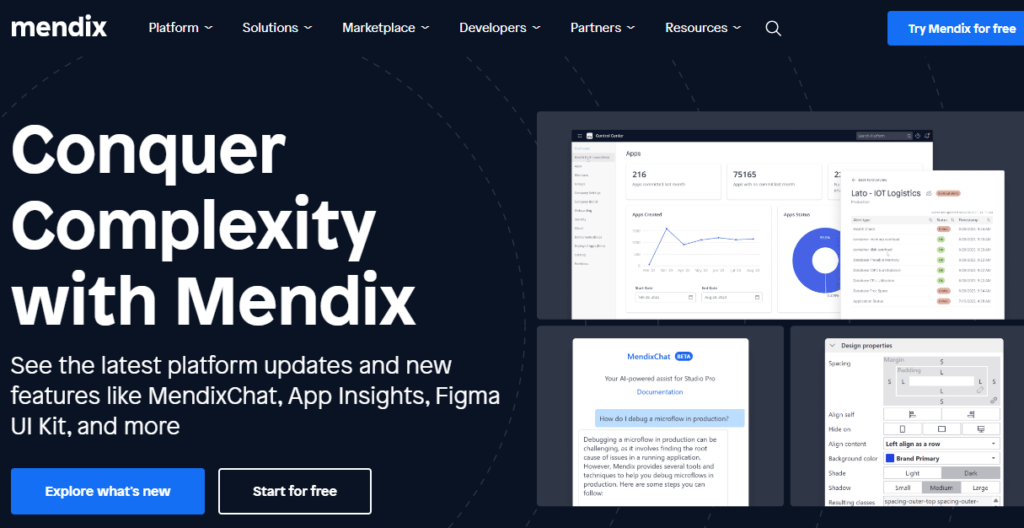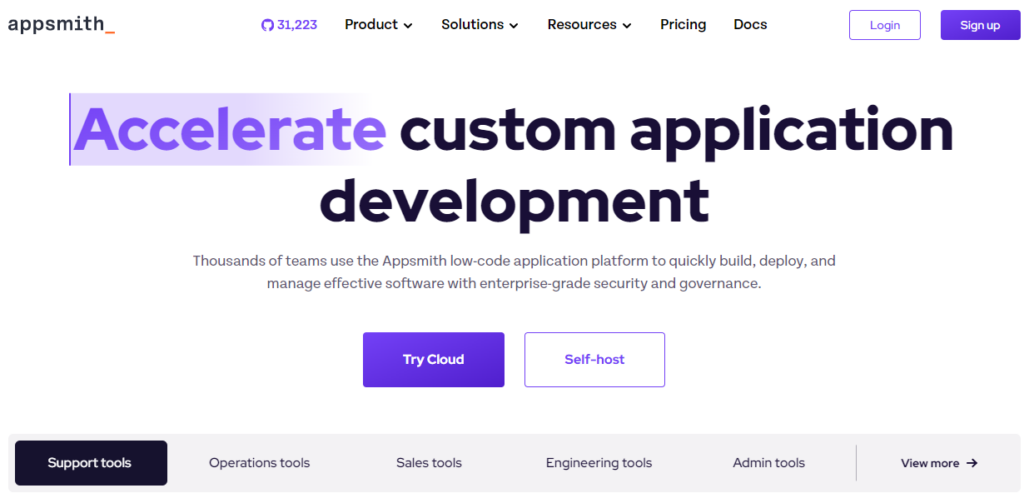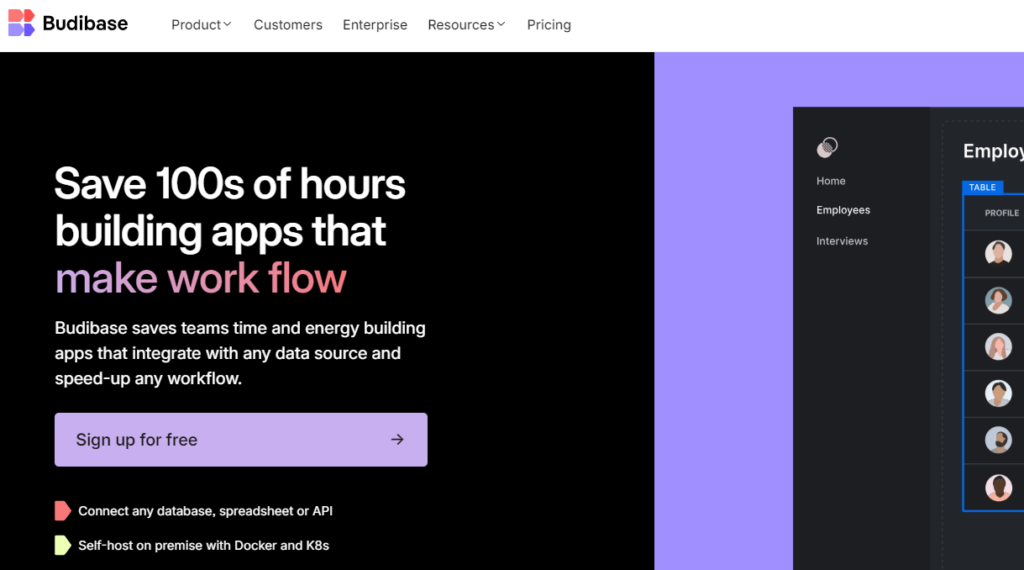You might be longing for different features, or perhaps you’re looking for something more budget-friendly and try to find Retool alternatives.
Or maybe you want a tool with a steeper learning curve that offers more customization potential.
Retool has become a go-to solution for building internal tools with its low-code approach that saves developers a significant amount of time.
Yet, like any tool, it’s not one size fits all, and it might not be the perfect fit for every project or organization.
That’s where alternatives to Retool come in, providing different benefits that might be better aligned with your project goals and team expertise.
Whether you are seeking more advanced user interface options, better integration capabilities, or simply want to explore the competitive landscape, there is a range of options available.
You’ll find platforms that are aimed at both the technically savvy and those less familiar with coding, making the process of creating internal tools more accessible to a wider audience.
Overview of Retool Alternatives
When you’re looking for an alternative to Retool, you’re likely considering factors such as ease of use, customization, and integration capabilities.
Retool has set a standard for rapid development of internal tools, but several alternatives offer unique benefits that may better align with your business needs.
Low-Code Platforms
1. AppSheet

Google’s entry to the low-code platform space is particularly friendly for non-technical users.
Offering deep integration with Google’s ecosystem, AppSheet emphasizes ease of use and automation.
2. PowerApps

As part of Microsoft’s suite, PowerApps is a strong contender for businesses already invested in the Microsoft ecosystem and provides robust tools for app development.
3. Mendix Platform

Focusing on enterprise-grade solutions, Mendix supports high scalability and extensive deployment options.
Integration & Scalability:
Retool’s alternatives often provide wide-ranging integrations and scalability options.
For example, PowerApps offers seamless connections to other Microsoft services and scaling features that support growing business demands.
Open-Source Frameworks
4. Appsmith

A newer player in the market, Appsmith is open-source and offers versatility in building internal tools with its widget-based UI components.
5. Budibase

Offers an open-source approach with a focus on simplicity and self-hosting, which might attract businesses looking for more control over their tooling.
Customization & Control:
Open-source frameworks give you more control over your internal tools.
With options like Appsmith, you can tailor-make applications due to the platform’s open-source nature and flexible UI.
Comparative Analysis
When considering alternatives to Retool, it’s important to assess feature sets, pricing, and community support to find the best fit for your business needs.
Feature Set Comparison
Retool: Offers a robust platform for building internal tools with minimal coding.
Quickbase: Known as a flexible no-code platform for solving unique problems and creating custom solutions.
Salesforce Platform: Often praised for its extensive ecosystem and integration capabilities.
Zoho Creator: A user-friendly option for creating apps using a drag-and-drop interface.
Compare these features against your project requirements to determine which platform aligns best with your goals.
Pricing Review
Pricing structures vary considerably:
Retool operates primarily on a tiered pricing model.
Quickbase and Zoho Creator offer subscription-based models that scale with usage.
Salesforce Platform pricing often reflects its enterprise-focus, potentially making it a higher-priced option.
Ensure to check for any hidden costs or fees associated with scaling or integration to avoid surprises.
Community and Support
Community strength and support availability can greatly influence your experience:
Retool and Salesforce Platform boast large communities with extensive documentation and forums.
Quickbase and Zoho Creator offer dedicated support, with Quickbase providing ample online resources.
Consider the level of support you require and whether the community can provide insights and troubleshooting assistance for your use case.
Example Tools
In your search for Retool alternatives, you need options that are user-friendly and cater to your specific development needs.
Look at the following examples to see which tool aligns best with your business requirements.
Tool A
Mendix is a robust low-code platform that scales well for large organizations.
It boasts a suite of enterprise-grade features that could streamline your application development and operational workflows.
You’ll find Mendix packed with over 200 ready-made components to expedite your development process.
Tool B
PowerApps from Microsoft is an integral part of the low-code landscape, especially suitable if you’re already using the Microsoft suite.
PowerApps offers deep integration with SharePoint, Dynamics, SQL Server, and Power BI, making it a highly attractive tool for those invested in Microsoft’s ecosystem.
Tool C
Another alternative to consider is Softr, which allows you to build internal tools without any coding.
It provides a flexible and user-friendly canvas to craft applications like user feedback libraries for product managers or applicant sorting tools for HR departments, enhancing collaboration and efficiency across your organization.
Implementation Considerations
When choosing a Retool alternative for your enterprise applications, considering how it will fit into your current and future environment is crucial.
Here’s what you need to keep in mind:
Integration Capabilities
Your chosen platform should seamlessly connect with your current databases, APIs, and services.
Look for:
- Pre-built connectors
- Custom API endpoints
- Authentication protocols (OAuth, JWT, etc.)
Scalability Potential
As your business grows, so should your applications.
Evaluate:
- Cloud vs. on-premises deployment
- Resource management features
- Ability to handle increased loads without lag
Learning Curve
Your team’s ability to quickly learn and utilize a platform is important for productivity.
Consider:
- Availability of documentation
- Community support or forums
- Training and educational resources offered
Key Takeaways
Exploring Retool alternatives can help you find tools that may better align with your business requirements or offer unique features that Retool does not.
Among the top contenders for Retool alternatives are:
Internal.io: Known for its user-friendly interface.
Jet Admin: Offers comprehensive analysis tools.
UI Bakery: Recognized for its low-code approach.
DronaHQ: Valued for its versatility and range of integrations.
Softr: Touted for its ease of use and extensive template library, particularly beneficial for those with no coding knowledge.
ToolJet emerges as a noteworthy mention for a cutting-edge, low-code platform enabling efficient building and deployment of internal tools.
When considering alternatives to Retool, focus on:
- Ease of Use: Platforms like Softr are highlighted for their no-code solutions, allowing you to get started swiftly.
- Customization and Flexibility: Look for a tool that offers robust customization options to tailor the tools to your specific workflows.
- Integration Capabilities: DronaHQ and others offer a variety of integrations that can streamline operations.
- Developer-Friendly: Some alternatives are especially aimed at developers looking to expedite internal tool projects.

